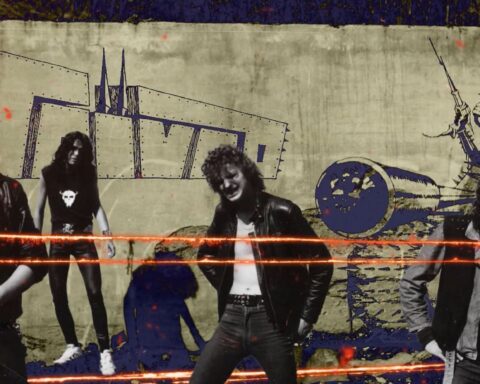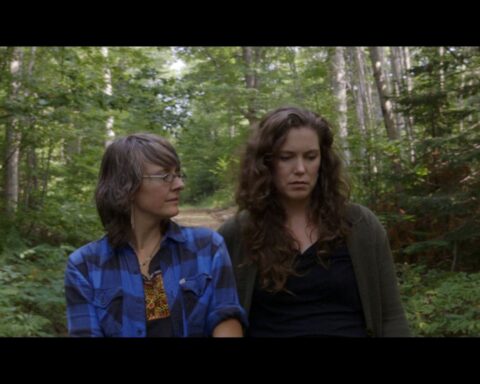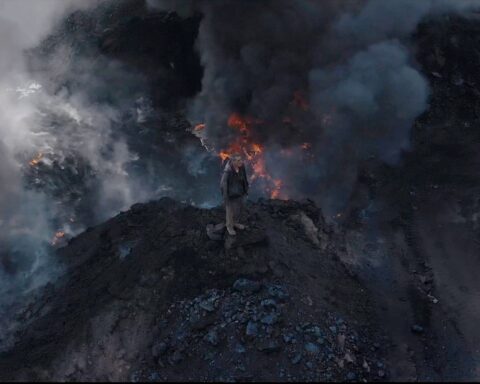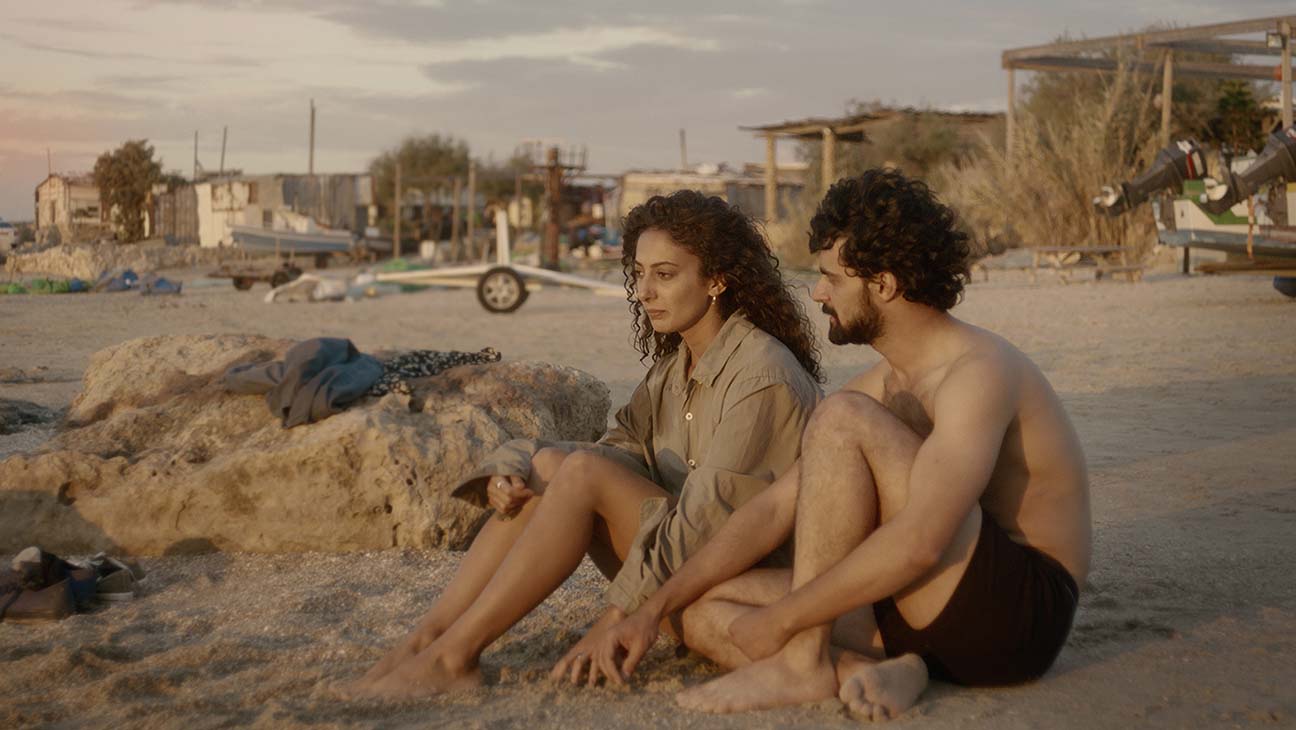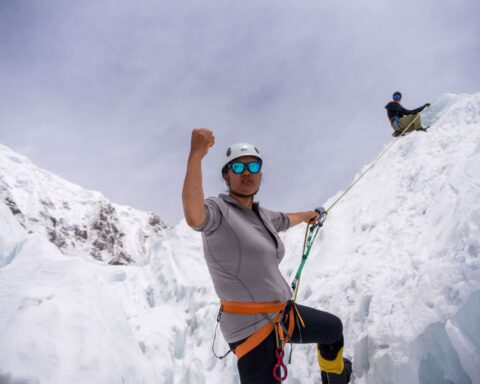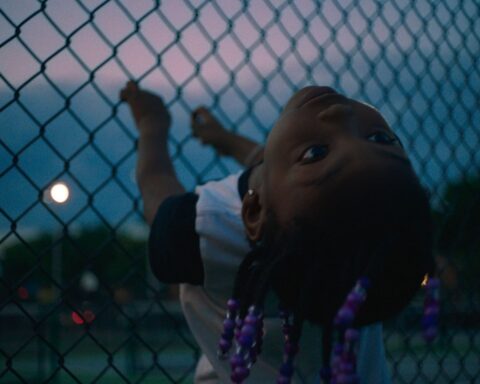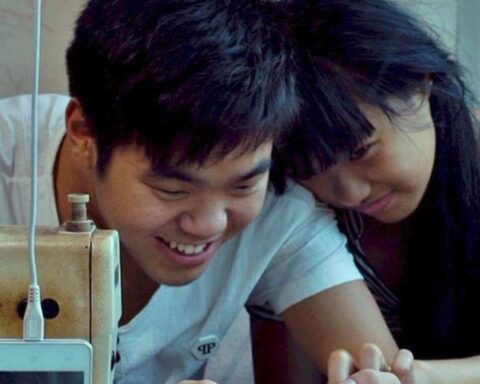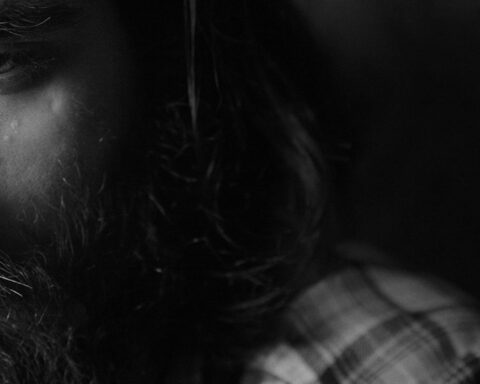Coral Ghosts
(Canada, 90 Min.)
Dir. Andrew Nisker
Climate change is damaging the globe at an alarming rate. One just needs to observe the rapidly deteriorating coral reefs in the oceans for an example of this threat. As Andrew Nisker’s Coral Ghosts notes, coral reefs build the foundation for marine life. When they die, so do the eco-systems that depend on them. While the situation is dire, there are individuals like marine biologist Dr. Thomas J. Goreau racing against time to save the ocean life.
Bringing greater attention to the underwater world that few rarely see is more than a passion project for Dr. Goreau. It is part of his DNA. His grandfather was an esteemed photographer, who captured some of the initial pictures of the first atomic bomb test on Bikini Atoll in 1946, and his parents were pioneers in reef research. Building on his family’s love for photography and science, Dr. Goreau has made it his mission to continue what his family started decades ago. Driven by this sense of duty, the brilliant and eccentric biologist travels the globe looking for innovative ways, including using metal frames infused with electric currents, to facilitate coral growth.
Coral Ghosts makes it clear that fostering this this type of growth is a steep uphill climb. Dr. Goreau makes it states that people only care about things they can see. Convincing them to rally their time and money behind a cause that they have no personal connection to brings its own sets of challenges. This is why the numerous photos his family took over the years, some of which were taken while pioneering underwater photography, are extremely valuable today. Dr. Goreau uses this wealth of unarchived historical treasures, most of which sit in stacks of boxes in his Boston home, to remind communities from Nunavut to Jamaica to Indonesia of the link between their past and nature.
A window to the past, Coral Ghosts shows how photography is an essential tool for documentation in the realm of science. While this form of photographic evidence may add to the sense of urgency of Dr. Goreau’s mission, the same cannot be said for Nisker’s documentary. For a film that stresses the importance of presenting visual records of the environmental damage that comes with Climate Change, the actual footage if the coral feels secondary. When the film does take the plunge underwater, it is quite informative; however, these sequences are too few and far between. Coral Ghosts is often more interested in Dr. Goreau himself rather than his cause.
Observing his passion and love of science, one can see why Nisker would be taken by Dr. Goreau. He is a fountain of knowledge that overflows when talking about his research, but quickly dries up when admitting to the downside of his obsession. One-off remarks and comments by others make it clear that Dr. Goreau’s unrelenting commitment to his work has threatened to derail his marriage on various occasions. Furthermore, it has not proven to be the most lucrative of ventures for his cause. As a colleague notes, his lack of business savvy often means that his research does not receive the proper funding it deserves. While the numerous threads surrounding Dr. Goreau are all worthy of deeper exploration, Coral Ghosts tiptoes around them as if afraid to place any pressure on the slightest crack.
This avoidance to go deeper into its subject makes the documentary equally fascinating and frustrating. One may walk away with a better understanding of the people who paved the way for Dr. Goreau, but not how his obsession with the past has stifled his present on a personal and professional level. Coral Ghosts may find hope in those fighting for our future, but the documentary does not always convey the same sense of urgency that fuels Dr. Goreau.
Coral Ghosts plays online at the Planet in Focus International Environmental Film Festival from October 14 – October 18.




